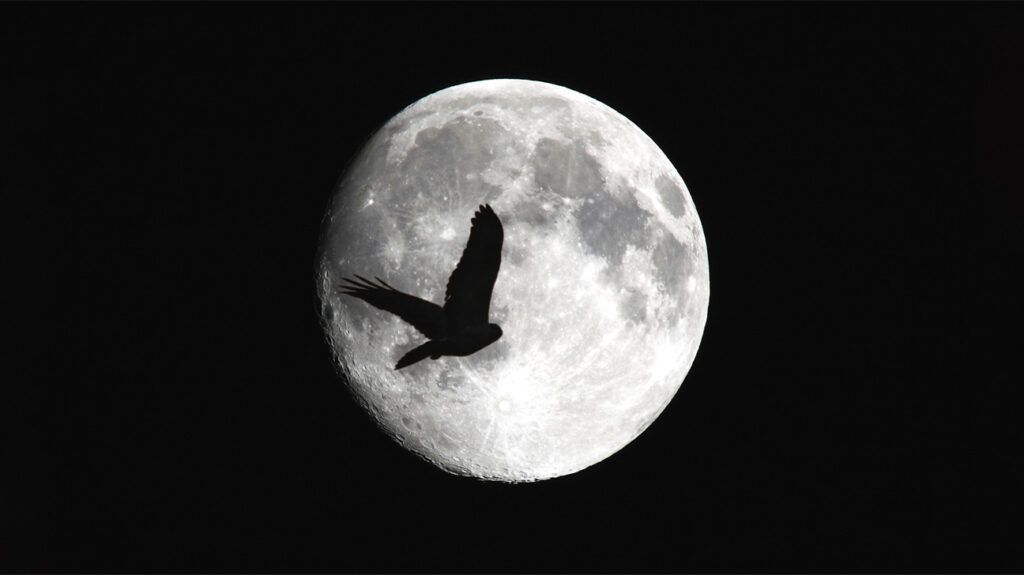
- Going to bed after 1 a.m. may have a negative impact on mental health, according to a new study.
- Researchers say an individual’s chronotype — whether they are a morning person or evening person — had little to do with these findings.
- Later bedtimes may result in less REM sleep, which helps the brain to function optimally.
If you go to bed later than 1 a.m., you could be at a higher risk of developing mental health issues, whether you are a morning person or a night owl. That is the conclusion of a new observational study from Imperial College London in the United Kingdom.
The study finds that people who go to bed before 1 a.m. are generally healthier mentally, with fewer reported cases of mental, behavioral, and neurodevelopmental disorders, depression, and generalized anxiety disorder (GAD).
Sleep researchers have been intrigued for years with the concept of chronotypes, meaning one’s preference for the time of each 24-hour day they prefer to be awake or sleeping.
Individual circadian rhythms may lead to personal preferences for sleep. Some people seem to prefer getting up and going to bed early, while others prefer to get up late and go to bed late.
A surprising finding of the study is that when evening people go to sleep after 1 a.m. — which would be in alignment with their chronotype — they experienced the poorest mental health. The group with the fewest mental health diagnoses were morning people who got to bed by 1 a.m.
The researchers analyzed data for community-dwelling adults in the UK Biobank. The study cohort consisted of 73,888 people, of which 56% were female. The mean age of the participants was 63.5 years, and they slept, on average, seven hours per daily sleep cycle.
The study is published in Psychiatry Research.
Senior study author Jamie Zeitzer, PhD, professor of psychiatry and sleep medicine at Stanford University, suggested cited a theory called “The Mind After Midnight,” which suggests the brain works differently late at night, which could have an impact on mental health.
“We think that it has to do with people being isolated when awake late at night, so they lack the guard rails and support that come with socialization or even knowing that someone else is awake,” Zeitzer explained to Medical News Today.
The theory is supported by sleep science, said Sara Wong, PhD, research associate at the Franks-Wisden Lab at Imperial College London (Wong was not involved in the new study).
Wong noted that sleeping late in the modern world often results in a restriction of total sleep duration. “This particularly affects rapid eye movement (REM) sleep, which occurs the most with gradual increases during the second half of the night,” she told MNT.
“REM sleep has a strong linkage with mood regulation — i.e., less REM, worse mood — with REM sleep changes seen as a risk factor for many neuropsychiatric disorders such as depression, [general anxiety disorder] and PTSD,” Wong explained.
The exact role of REM is not entirely clear, but Wong reported it is linked to cortical excitability, which can lead to cognitive dysfunction and potentially excitotoxicity, a buildup of waste in the brain.
“Perhaps REM sleep is important also in this aspect,” Wong said, citing
Chronotypes regulate how how the body’s internal clock functions. While the human internal clock typically spans 24 hours, it also interacts with the environment.
With the prevalence of artificial light, and other factors such as nighttime work shifts, “one could argue that our society is still in many ways maladapted for evening types,” Jonathan Cedernaes, PhD, researcher in the Department of Medical Sciences; Transplantation and regenerative medicine at Uppsala Universitet in Sweden, not involved in the study, told MNT.
Wong noted that evening chronotypes are often associated with
Even so, the study’s findings calls the concept of the chronotype into question. “This was quite surprising, and against our hypothesis,” Zeitzer said.
“We went into the study thinking that we would find that alignment was the most important aspect of mental health — that is, larks should get up early and owls should stay up late. We were very surprised that this was not true for owls. It isn’t to say that being aligned as an owl couldn’t be beneficial for mental health, but on the whole, staying up late ends up being a negative for mental health.”
— Jamie Zeitzer, PhD, senior study author
Zeitzer hypothesized the significance of 1 a.m. as a cutoff for bedtime: “I think that it has to do with the population we studied (middle and older aged residents of the U.K.),” he said, noting that common social patterns could also be a factor.
Cedernaes pointed out the effects of seasonal changes on sleep and timing. “This also depends on whether regions switch between Standard Time and Daylight Saving Time,” he noted.
“A specific optimal bedtime would therefore probably need to take both season and time zone into account. For example, some regions, such as Spain and Iceland, are not ideally located within their timezones, and so many sleep-wake behaviors are much later in such regions,” Cedernaes said.
Zeitzer was not so sure, however. “I do not think it would be shifted much by the timing of the morning light, more along the lines of seasonal shifts in social patterns,” he said.
